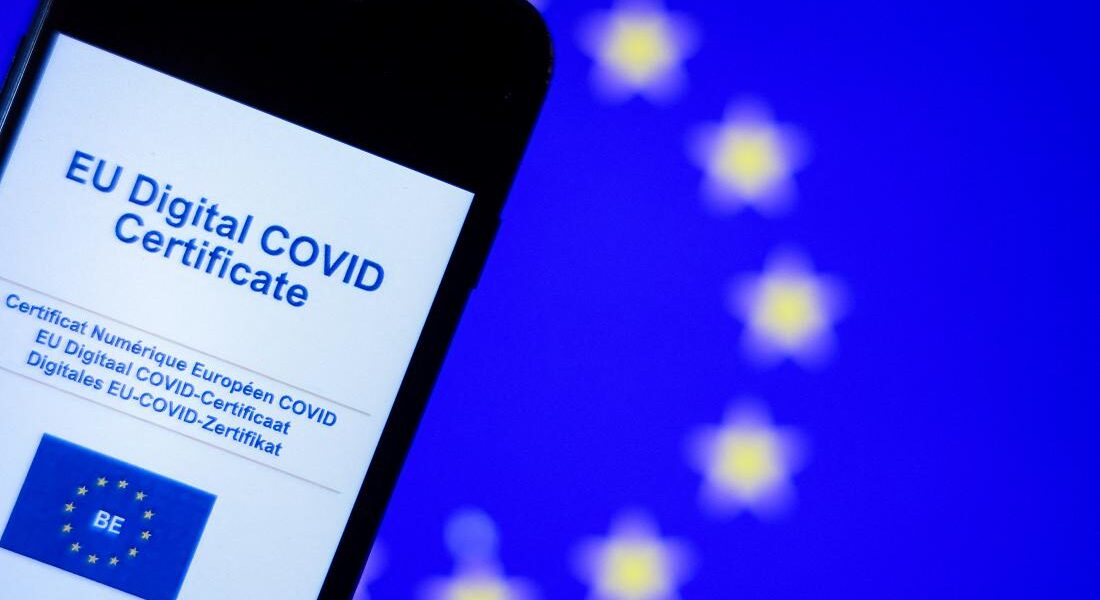Greeks and all other residents of the European Union will need to ‘travel’ with the so called Covid-19 passport for at least another year following the announcement by the European Commission that it will be extending its usage.
The European Commission proposed yesterday to extend the EU Digital COVID Certificate by a year, until 30 June 2023 due to the continuing prevalence of the COVID-19 virus, adding that at this stage it is not possible to determine the impact of a possible increase in infections in the second half of 2022 or of the emergence of new variants.
“The EU Digital COVID Certificate has facilitated safe free movement and travel in times of great uncertainty. Our citizens have embraced it and it has made their lives easier. This important tool has been key to manage the risks and support public health measures in place to protect citizens during the pandemic. Today we propose to update the possibilities to make use of the certificate for travel across the EU in order to provide certainty for our citizens, as long as the public health needs persist. We also propose to bring our certificate up to date with the latest scientific developments and epidemiological changes, the need to speed up booster campaigns and to support vital on-going clinical research, acknowledging citizens taking part in it.” said EU Commissioner for Health and Food Safety, Stella Kyriakides.
According to the Commission, extending the Regulation will ensure that travellers can continue using their EU Digital COVID Certificate when travelling in the EU where Member States maintain certain public health measures.
The Commission adopted the proposal yesterday to make sure the European Parliament and the Council can conclude the legislative procedure in time before the current Regulation expires.
In addition to the extension of the EU Digital COVID Certificate Regulation until June 2023, the Commission also proposed some limited amendments:
- To include high-quality laboratory-based antigen tests among the types of tests for which a test certificate can be issued. This aims to widen the scope of the types of diagnostic tests at a time where COVID-19 tests are in high demand.
- To ensure that vaccination certificates contain the correct overall number of doses administered in any Member State and not just in the Member State issuing the certificate. This is to address practical concerns raised by citizens about certificates indicating an incorrect number of doses when they receive vaccine doses in different Member States.
- To provide that certificates may be issued to persons participating in clinical trials for vaccines against COVID-19. The EU Digital COVID Certificate issued to trial participants may then be accepted by other Member States. This measure aims to encourage the continued development and study of vaccines against COVID-19.
The domestic use of EU Digital COVID Certificates remains a matter for Member States to decide. The EU legislation on the EU Digital COVID Certificate neither prescribes nor prohibits the domestic use of EU Digital COVID Certificate (such as for access to events or restaurants). At the same time, where a Member State establishes a system of COVID-19 certificate for domestic purposes, it should continue to ensure that the EU Digital COVID Certificate is also fully accepted for those purposes. Beyond that, the Commission also encourages Member States to align their domestic validity periods with the validity period set at EU level for the purpose of travel.


